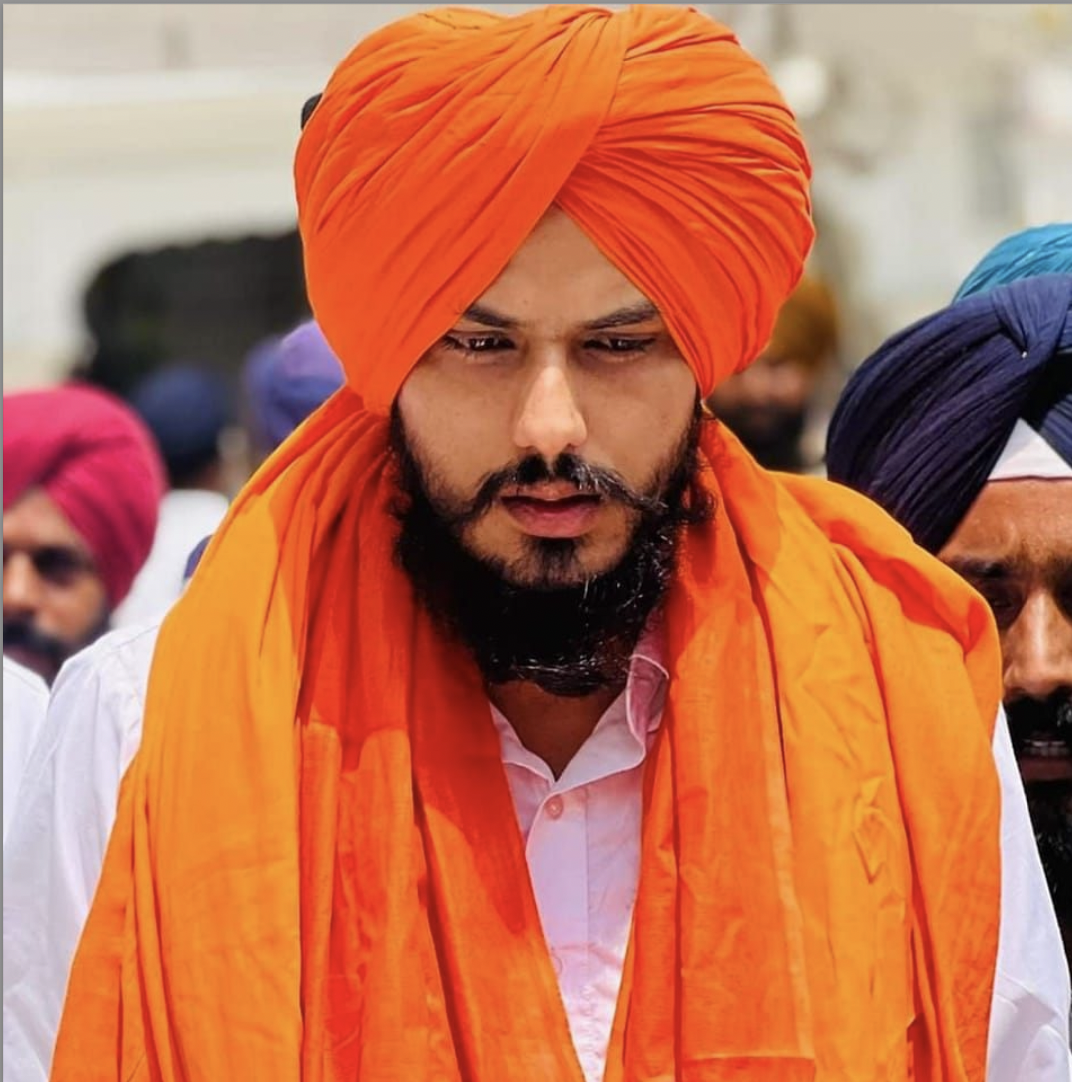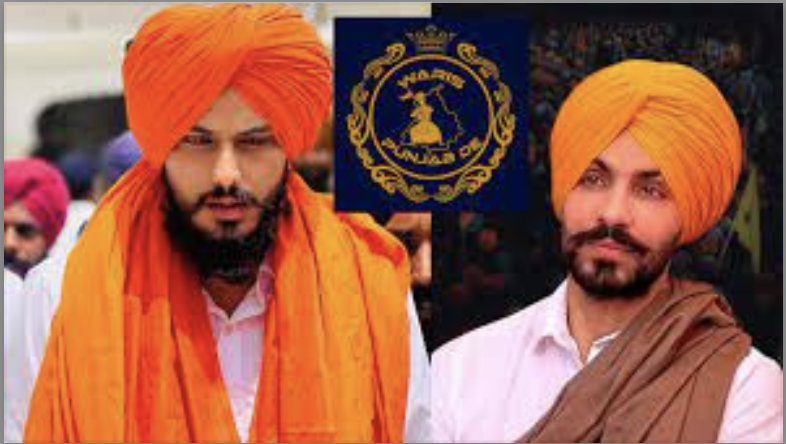DESIBUZZCanada
Events Listings
Dummy Post

International Day Of Yoga To Be Virtually Celebrated Saturday At 4pm

CANCELLED: Coronavirus Fears Kills Surrey’s Vaisakhi Day Parade

ADVERTISE WITH US: DESIBUZZCanada Is The Most Read South Asian Publication Online

SURREY LIBRARIES: Get Technology Help At Surrey Libraries

WALLY OPPAL: Surrey Police Transition Update On Feb. 26

GONE ARE THE DAYS - Feature Documentary Trailer

Technology Help At Surrey Libraries

Birding Walks

Plea Poetry/short Story : Youth Contest

International Folk Dancing Drop-in Sessions
RETURN OF BHINDERANWALE: Who Is Amritpal Singh And Why Is Indian Government So Scared of Him?
- January 7, 2023

AMRITSAR – Who is Amritpal Singh and why is the Indian government so scared of him?
The 29-year-old, who landed in Punjab from Dubai following the death of activist and actor Deep Sidhu, has quickly gained political and religious stock with his passionate speeches about Sikhsim and has dramatically risen in the world of Punjab Sikh politics with many comparing him to legendary Sikh preacher and revolutionary Jarnail Singh Bhinderanwale.
While Amritpal Singh's critics accuse him of trying to destabilise Punjab, his fans say he's trying to revive Sikhi and if you listen to his new brand of rational but modern Sikhi thought, it is clear that he seems to be on the right path to deliver to worldwide Sikhs what the corrupt SGPC leadership hasn’t done and will not do.
"We (Sikhs) have become a community of slaves" - this is a message Amritpal Singh, the head of Waris Punjab De, tries to push in most of his speeches.
Amritpal Singh has suddenly burst into Punjab's religio-political scene after he took over Waris Punjab De, an organisation formed by actor-activist Deep Sidhu, before his death in an alleged accident in February 2022.
Many of Amritpal Singh's public gatherings have attracted huge crowds and he has a massive social media following on tik tok.
While public opinion around him is deeply divided, with fans are hailing his efforts to revive Sikhi and his campaign against drugs, besides the large crowds in his gatherings.
On the other hand, the critics, the usual political lackeys like washed out politician Captain Amarinder Singh, accuse him of trying to destabilise Punjab.

So who is Amritpal Singh?
Born in 1993, Amritpal Singh Sandhu hails from Jallupur Khera village in Baba Bakala tehsil of Amritsar district.
He is said to have studied up to the plus two level, before he left for Dubai for work in 2012. He worked in the transport business in Dubai and came back only in 2022 to take over Waris Punjab De, reported the Quint publication.
Social media activity around him indicates that he had been speaking out on issues related to Sikhs for at least the last five years or so.
He came became part of the protests against the farm laws, especially the strand of the movement associated with Deep Sidhu.
Based on Deep Sidhu's speeches at the Shambhu Border, this strand differed from the farm unions as he believed that the movement shouldn't stop with the repeal of farm laws but lead to a larger political and social transformation in Punjab.
Amritpal Singh's own views are in the same direction but he articulates them in a different vocabulary from Deep Sidhu.
Apparently, Amritpal never met Deep Sidhu and the two interacted only through social media.
His supporters claim to that Deep Sidhu was close to Amritpal Singh and that he came to head Sidhu's Waris Punjab De through a legitimate process.
His leadership of Waris Punjab De is disputed by some of Deep Sidhu's aides like Palwinder Singh Talwara and a few members of Sidhu's family.
Journalist Bhagat Singh Doabi claims that Sidhu had even blocked Amritpal on social media. This allegation remains disputed.
His critics say that Amritpal Singh was announced as the head of Waris Punjab De through a sudden announcement on social media, that too not an official page, and that this wasn't endorsed by Deep Sidhu's family.
Amritpal Singh says that be it the farm laws, the water crisis in Punjab, the drug menace, migration of people from UP and Bihar into Punjab, arrest of political dissidents, undermining of Punjabi language are all part of a "silent genocide" of Sikhs.
For instance, when he addressed the people protesting against a liquor manufacturing plant in Zira, he said that such factories are part of the silent genocide of Punjabis as it would lead to increased addiction, besides polluting water.

He also says that the dilution of Sikh values and promotion of pop culture encouraging Sikhs to cut their hair and shave their beard, is also part of the same process of "silent genocide".
"Not all genocide involves killing. If a grandson doesn't look like his grandfather? If a lion's progeny don't look like lions but deer, isn't that also a kind of genocide?"
He also says that "Punjab is for Punjabis" and that jobs need to be reserved for locals at all levels.
Amritpal Singh's critics say that his speeches could take the youth in the direction of extremism and on a path that gets them arrested or even killed.
To such allegations, Amritpal Singh responds that, "Didn't Guru Gobind Singh sacrifice his sons? What if he had also thought of the consequences? What would have become of Sikhs then?"
"I don't want anyone to die but if someone's son gives up his life for Sikhi then he becomes Guru's son," he says.
The mainstream media and political parties have accused him of trying to destablise Punjab, while some of his critics say he is increasing the divide between Sikhs and other communities, especially Hindus.
During some of his public addresses he alleged that "migration of Hindus from UP and Bihar" and "Gujjar Muslims from Jammu" may represent an economic threat to Punjabi Hindus and Muslims but are not a cultural threat and that's why they may be happy about such developments.
Interestingly, many within the pro-Khalistan sphere are also a little distrustful of Amritpal Singh. This is mainly because the older guard understand the machinations of state agencies and they don't trust new entities easily.
Also, often many organisations who may be pro-Khalistan, often make common cause with diverse groups including Leftists, Bahujan groups, Muslim groups, Kashmir based groups. Amritpal Singh's shrill rhetoric, many feel, isn't conducive to such solidarities.
However, Shiromani Akali Dal (Amritsar) president and Sangrur MP Simranjit Singh Mann has been very supportive of Amritpal Singh.
First, he has received a considerable degree of attention in the media as well as social media. The attention of the mainstream news channels in Punjab is particularly surprising because they are largely known to black out pro-Khalistan elements.
The second factor is that any criticism of him has been met with aggressive resistance from his supporters, especially on social media.
Though this is an extremely early stage and one can't say what Amritpal Singh's political trajectory will be. His rise can be seen as the result of a vacuum at three interconnected levels in Punjab: political, religious and the unrest among the youth, reported the Quint.
With Files from the Quint


















